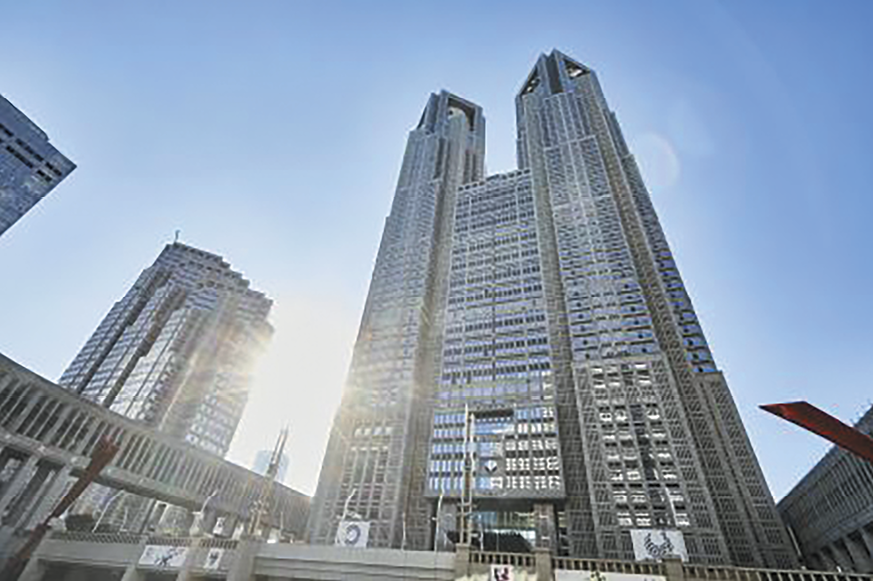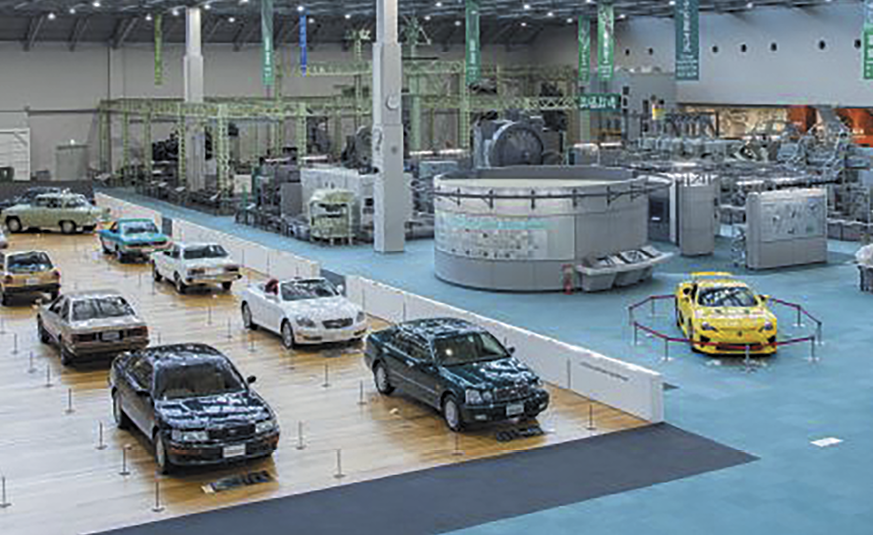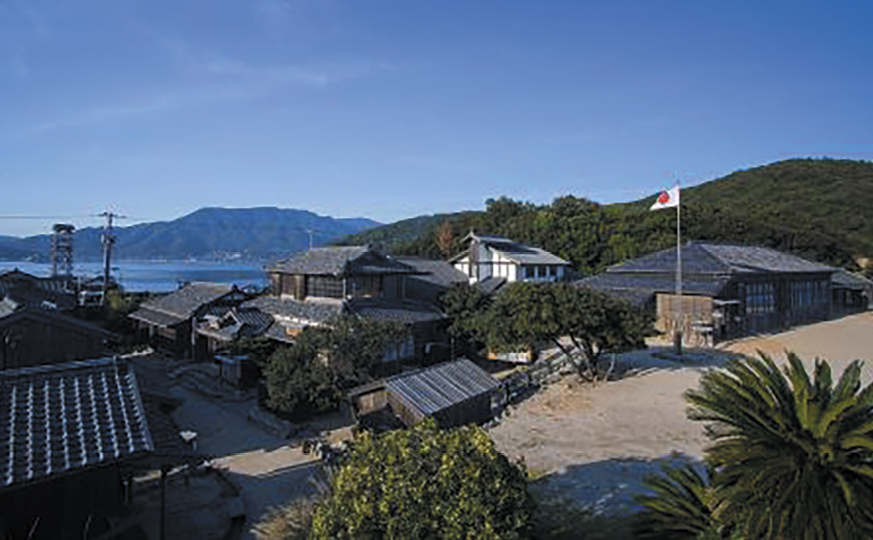- Home
- Media Kit
- MediaJet
- Current Issue
- Past Issues
- Ad Specs-Submission
- Reprints (PDF)
- Photo Specifications (PDF)
- Contact Us
- PRIVACY POLICY
- TERMS OF USE
![]()
ONLINE
![]()
ONLINE

A Global Partnership
For The Future
Editors’ Note
Ambassador Shigeo Yamada assumed his post as the Ambassador of Japan to the United States of America in December 2023. He is a long-time veteran of the Japanese Ministry of Foreign Affairs. His very first posting was as a Second Secretary in Washington, DC in 1989. In 2012, he returned to Washington as Political Minister. Prior to assuming his current post, he served as Senior Deputy Minister for Foreign Affairs. In that capacity, he was Political Director for Japan’s 2023 G7 Presidency, supporting the G7 Summit in Hiroshima and the G7 Foreign Ministers’ Meeting in Nagano-Karuizawa. His previous positions in Tokyo include Deputy Minister for Foreign Affairs for Foreign Policy, Deputy Director General for North American Affairs, Director for Northeast Asia, Director for Southeast Asia, and Director for the Status of U.S. Forces Agreement. He also served as a Cabinet Councilor in the National Security Secretariat in the Prime Minister’s Office. In addition to his postings in Washington and Tokyo, over the course of his career he was in charge of the public and culture affairs at the Embassies of Japan in London and Beijing. Ambassador Yamada earned a BA degree in law from Keio University and a BA degree in political science from Carleton College in Minnesota.

Tokyo Metropolitan Government Building
Will you discuss the importance of a strong relationship between the United States and your country?
As the international community stands at a historic crossroads, the importance of the Japan-U.S. alliance has never been greater. Our relationship has evolved from one focused on bilateral issues to a regional partnership for a free and open Indo-Pacific, and, as Prime Minister Kishida and President Biden stated in their joint declaration, it is now a “global partnership for the future.” Examples include the “mini-lateral” cooperation among like-minded countries, including the Republic of Korea, Australia, India, and the Philippines, as well as cooperation through the G7 and with ASEAN. It is extremely important for Japan to address global issues hand in hand with the United States, including, for instance, supporting Ukraine against Russia’s unprovoked war of aggression. Japan also continues to deepen our ties with Global South countries by promoting cooperation rather than division and confrontation.
We will continue to work to protect a free and open international order based on the rule of law, and to ensure peace and prosperity in the Indo-Pacific region and beyond.
“As the international community stands at a historic crossroads, the importance of the Japan-U.S. alliance has never been greater.”
What do you see as the strengths of your country for foreign investment?
There are five main reasons to invest in Japan:
1. Japan offers a rich and reliable free market. It is ranked first globally in the Economic Complexity Index. If economies are like restaurants, then Japan is equipped with all the supplies that are needed in the kitchen to provide a diverse menu.
2. Japan has an abundance of intellectual assets. Our country is ranked first in the world in terms of the number of Patent Cooperation Treaty (PCT) applications as a percentage of GDP and fourth in the world in terms of R&D expenditure as a percentage of GDP.
3. Japan has an excellent human capital base. In the OECD PISA survey, Japan ranked first in mathematical literacy, first in scientific literacy, and second in reading comprehension among OECD member countries.
4. Japanese infrastructure offers an excellent business environment. The National Strategic Special Zone system and other initiatives have created an environment that supports the introduction of new businesses and technologies. Moreover, Japan provides reliant and convenient transportation infrastructure that extends throughout the country for daily commutes, as well as business trips with Shinkansen bullet trains, without delay or trouble.
5. Japan is a society that offers a high quality of life. It is home to the world’s highest standard medical system and has a safe and secure living environment. Furthermore, Tokyo, Kyoto, and Osaka are the world’s top gourmet cities, ranked as three of the top five cities with the most Michelin-starred restaurants worldwide.

The Tokyo Metropolitan Government Building
How critical is your country’s role in the global economy?
As the world’s largest net external asset country, Japan creates employment all over the world. In the United States, Japanese companies have invested nearly 800 billion dollars, making Japan the largest foreign investor for five consecutive years, contributing to the creation of nearly one million jobs. Additionally, Japan demonstrates leadership across multiple fields, including international trade, politics, and interregional cooperation. In this context, Japan has been an advocate on the concept of Data Free Flow with Trust (DFFT), which aims to promote the free flow of data across borders while ensuring trust in privacy, security, and so forth. To achieve this, Japan has been actively working on establishing international rules through forums such as the WTO and various FTAs. Similarly, under Japan’s leadership at the G7 Hiroshima Summit, the Hiroshima AI Process was launched, which led to the development of the Comprehensive Policy Framework encompassing the International Guiding Principles and the Code of Conduct for AI Developers. As such, Japan will continue to actively engage in international rulemaking and discussions in a multitude of crucial areas.
Will you highlight your career journey and what led to your role as Ambassador?
This is my third time being posted in the United States. The first time was 35 years ago, right after joining the Ministry of Foreign Affairs of Japan. I studied abroad at Carleton College in Minnesota and then began my career as a diplomat. The second time was about 10 years ago, when I served as a political minister at the Embassy. Then I returned to Washington, D.C. as an Ambassador last December. At each stage, I have been blessed with amazing friends and colleagues within the U.S. government, with businesses, journalists, and so on. I believe that all these truly indispensable connections contribute to the foundation of our stronger-than-ever bilateral relationship because, ultimately, international relations are about human relationships. As Ambassador, I would like to further strengthen our people-to-people exchanges.

Twenty-Four Eyes Movie Studio in Shodoshima, Japan
What do you tell young people in your country about the importance of public service?
I have so much hope for young people in Japan! The world is changing all the time, and young people have so many exciting opportunities ahead of them. When I was a student, I read a novel called “Ikari-no-nai-fune” (English title: Riding the East Wind) by Otohiko Kaga, which was about a Japanese diplomat trying to pursue peace in the 1940s. Looking back, I think this book gave me the inspiration to become a diplomat and contribute to the peace and prosperity of the international community.
For almost 40 years, I’ve had the incredible opportunity to engage in a variety of positions in amazing places, including the United States, Tokyo, London, and Beijing. In each position, I have felt a sense of accomplishment, knowing that I played my small part to contribute to the international community as I dreamed when I was young.
I truly believe the connections I have made in public service, the incredible work I have been able to accomplish with my colleagues and friends, and the knowledge I have gained cannot be measured in monetary terms. I wholeheartedly hope that young people in Japan will consider public service as one of their career options. Whatever path they choose, I hope that they will represent Japan and nurture friendships with people around the world.![]()